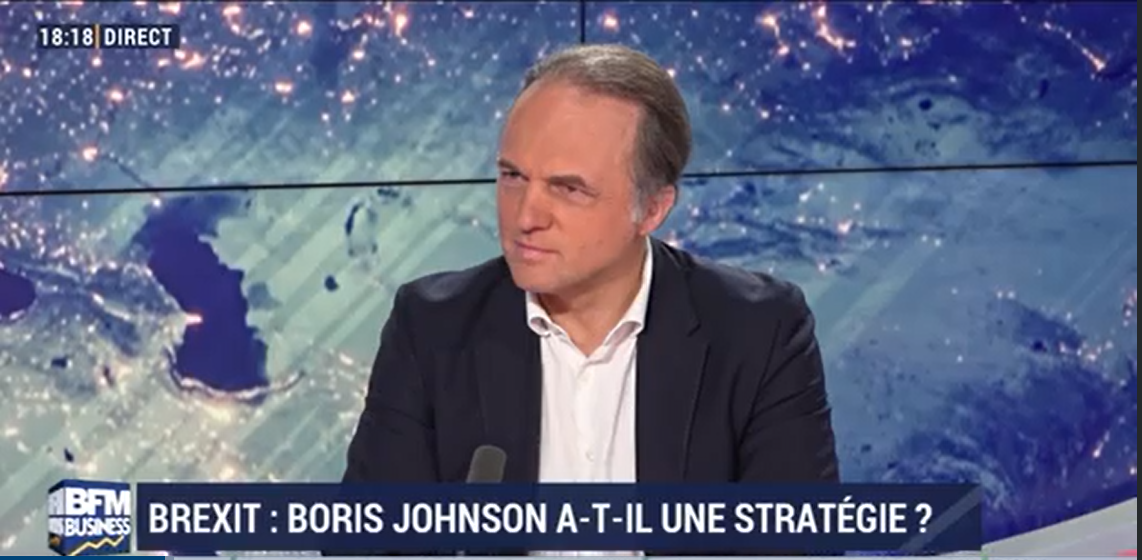On BFM Business: Boris Johnson’s strategy towards Brexit and the British Parliament

On BFM Business on September 5, 2019, Yves Bertoncini gave us his analysis of Boris Johnson’s strategy towards Brexit and the British Parliament.
Background information
At the beginning of September 2019, Boris Johnson lost several battles:
– parliamentarians have adopted a bill that provides that if it does not reach an agreement with the Europeans by mid-October, the deadline for Brexit will be extended to the end of January
– the motion that Boris Johnson wanted to pass to impose legislative elections was rejected.
A Brexit without agreement or with?
“Boris Johnson lost his last battles, but he is not a headless duck. Its strategy is to move forward, to try to move forward in force. Above all, it seeks to obtain a Brexit, if possible with agreement, if not without agreement – but Parliament has just said that it does not want Brexit without agreement”, Yves Bertoncini analyses.
Are early parliamentary elections still possible?
“Boris Johnson still wants to dissolve Parliament. This is possible if a resolution that prevents a Brexit without agreement – as Jeremy Corbyn calls for – is adopted. In this case, elections would be held around mid-October, and Brexit would be postponed until January 2020”, says the President of the European Movement – France.
A possible renegotiation of the agreement with the Europeans?
The agreement negotiated with Theresa May has been rejected three times by the British Parliament. “For Europeans, the advantage of submitting this agreement to the British Parliament is that they have seen the points that are problematic, particularly the Irish border.” [Editor’s note: The European Union wishes to avoid the re-establishment of a border between Northern Ireland and the Republic of Ireland; this is a red line for the British Parliament, which considers that the proposed solution of a check point would be an attack on the territorial and constitutional integrity of the United Kingdom].
“Europeans are realistic; if the British tell Europeans that they can afford to pass a text in the British Parliament that will be the brother of the current agreement, they may take the necessary steps to renegotiate a very close agreement”. Yves Bertoncini adds: “It is in the interest of Europeans not to postpone the subject forever and ever, to settle it once and for all, so that we can move on to new projects”.
A Brexit without an agreement would, according to the latest Bank of England figures, be worth a 5.5% recession in the United Kingdom. On behalf of Boris Johnson, why consider it?
According to the President of the European Movement France, “Europe has always been a field of political struggle in the United Kingdom, used to settle scores internally. Recently, politicians have made Theresa May Prime Minister, to make her do the dirty work, and take her place. In the current context, it is a question of arena politicians showing their muscles. Beyond the analysis, it can be assumed that these ideological divisions are irresponsible in view of their cost to the economy”.
“Pragmatically, Boris Johnson has an interest in an exit with agreement. A negotiated agreement would create a stability shock for his country because it would benefit from the positive situation of having “resolved the crisis”; a period of stability of two or three years would follow, while the provisions of the agreement were being put in place; in addition, it would benefit from a supply shock from investors who have so far withheld their investments.
To watch the interview [15’30 to 26’20].